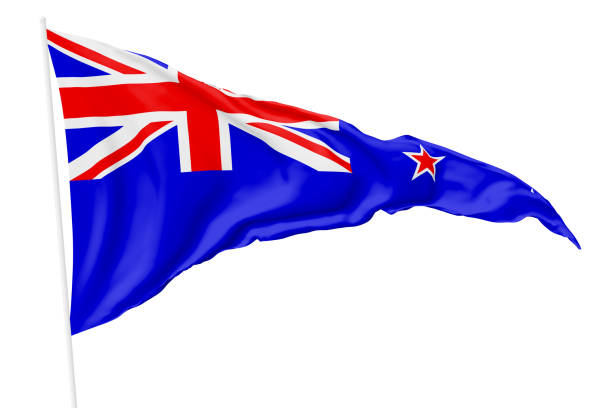Unlocking Potential: A Comprehensive Guide to Applying for Scholarships in New Zealand from the Philippines
For Filipino students with academic aspirations and a thirst for knowledge, New Zealand beckons as a premier destination for postgraduate studies. World-renowned universities, a supportive research environment, and breathtaking landscapes combine to create an enriching educational experience. However, financing these studies can be a significant hurdle. Fortunately, a diverse range of scholarships are available to Filipino students, making postgraduate studies in New Zealand a more attainable goal. This comprehensive guide equips you with the knowledge and strategies to navigate the application process and secure the financial aid you need to turn your academic dreams into reality.
Advertisements
Unveiling the Scholarship Landscape in New Zealand
The scholarship landscape in New Zealand offers a variety of options for Filipino students. Here’s a breakdown of the key players:
-
New Zealand Government Scholarships: The New Zealand government offers prestigious scholarships specifically targeted towards international students, including Filipinos. Programs like the Manaaki New Zealand Scholarship prioritize high-achieving students from developing countries pursuing postgraduate studies aligned with New Zealand’s development goals. Thorough research into eligibility criteria and application procedures is crucial when exploring these government-sponsored scholarships.
-
University Scholarships: Many universities in New Zealand offer their own scholarship programs, often targeted towards attracting high-caliber international students. These scholarships can range from partial tuition fee waivers to full scholarships covering both tuition and living expenses. Filipino students are encouraged to explore the websites of universities they’re interested in to discover scholarship opportunities and application details. Examples include the University of Auckland’s International Student Excellence Scholarship and Victoria University of Wellington’s Tongarewa International Scholarship, both catering to outstanding international students.
-
Subject-Specific Scholarships: Certain organizations or institutions might offer scholarships dedicated to specific academic disciplines, such as science, engineering, or environmental studies. These scholarships can be particularly valuable for Filipino students pursuing specialized postgraduate programs. Research scholarship opportunities offered by organizations related to your chosen field. For instance, a student interested in renewable energy could explore scholarships offered by organizations focused on sustainability initiatives in the Philippines or New Zealand.
-
Combined Funding: Explore the possibility of combining funding sources to cover your expenses. This could involve a combination of scholarships, part-time work opportunities (with proper visa permissions), or support from your family. Remember, many universities in New Zealand offer on-campus job opportunities or assist international students in finding part-time work to supplement their income.
Eligibility Criteria and Building a Competitive Application
Understanding the eligibility criteria for various scholarships is crucial for Filipino students applying from the Philippines. Here’s a breakdown of some key factors to consider:
-
Academic Background: Strong academic performance in your undergraduate studies is a fundamental requirement for most scholarships. Focus on maintaining a high GPA and achieving strong grades in courses relevant to your chosen postgraduate program.
-
Standardized Tests: Many scholarships and postgraduate programs might require standardized test scores like the GRE (Graduate Record Examination) or GMAT (Graduate Management Admission Test). These tests assess your quantitative reasoning, analytical writing, verbal reasoning, and critical thinking skills, ensuring you possess the foundation for success in rigorous postgraduate studies. Prepare for these exams well in advance, especially if they are required for the scholarships you’re targeting.
-
English Language Proficiency: As most postgraduate programs in New Zealand are conducted in English, demonstrating your proficiency in the language is essential. Submit standardized test scores like IELTS or TOEFL to meet the required English language proficiency level. Beyond test scores, consider online English language conversation groups or online forums to enhance your fluency and communication skills in an academic setting.
-
Research Experience (if applicable): While not always mandatory, research experience can significantly strengthen your scholarship application, particularly for programs focused on research endeavors. Highlight any involvement in research projects undertaken during your undergraduate studies or internships in the Philippines. Did you assist professors with ongoing research initiatives? Presenting your findings effectively. Work Experience (if applicable): Some scholarship programs, particularly those offered by universities, might consider relevant work experience when evaluating applications from Filipino students. If your work experience aligns with your chosen field of study and demonstrates valuable skills like leadership, teamwork, or problem-solving, highlight it in your application. Quantify your achievements whenever possible to showcase the impact of your work experience. For instance, if you managed a team at your previous job in the Philippines, mention the size of the team and highlight a specific instance where your leadership skills resulted in a positive outcome for the project.
- Leadership and Volunteer Experience: Demonstrating leadership qualities and a commitment to social responsibility can enhance your application as a Filipino student. Have you held leadership positions in student organizations in thePhilippines or volunteered your time for causes you care about? Including these experiences showcases your well-roundedness and potential to contribute positively to the university community in New Zealand. Did your volunteer work involve any international collaborations with organizations in New Zealand or other countries? Highlighting such experiences can demonstrate your cross-cultural awareness and ability to thrive in diverse environments.
Building a Winning Scholarship Application Package
A well-constructed scholarship application package goes beyond simply meeting the minimum requirements. Here are some strategies to create a compelling application that stands out from other Filipino students:
-
Carefully Review Selection Criteria: Read the scholarship guidelines thoroughly and ensure your application addresses all specified criteria. Failing to meet any of the requirements can result in automatic disqualification. Pay close attention to details like minimum GPA requirements for Filipino students, acceptable standardized test scores (like IELTS or TOEFL for English language proficiency), and specific document formats.
-
Gather Required Documents: Prepare all necessary documents well in advance to avoid last-minute delays, especially considering potential mailing times between the Philippines and New Zealand. This typically includes:
-
Academic Transcripts: Request official transcripts from your undergraduate university in the Philippines, ensuring they are translated into English by a certified translator if necessary. Some universities in New Zealand might require transcript evaluation for equivalency with the New Zealand grading system. Research recognized evaluation agencies in the Philippines and initiate this process well in advance to avoid delays.
-
Proof of English Language Proficiency: Submit standardized test scores like IELTS or TOEFL to demonstrate your English language skills. These tests assess your reading, writing, listening, and speaking abilities, ensuring you can effectively participate in postgraduate studies conducted entirely in English.
-
Reference Letters: Strong letters of recommendation from professors familiar with your academic abilities and research potential can significantly enhance your application. Choose professors who can speak to your strengths, work ethic, and potential for success in your chosen field of study. Provide them with relevant details about your academic goals, the specific scholarship you’re applying for, and your aspirations for contributing to your field upon returning to the Philippines. This can help them tailor their recommendations to showcase your potential from a Filipino student’s perspective.
-
Curriculum Vitae (CV) or Resume: Prepare a concise and well-formatted CV or resume highlighting your academic background, research experience (if applicable), relevant work experience (if required by the scholarship), and any awards or achievements that demonstrate your qualifications. Adapt your CV/resume to highlight skills and experiences particularly relevant to the scholarship program and the postgraduate program you’re applying to.
-
Additional Documents (if applicable): Some scholarships might require additional documents, such as a research proposal if applying for a research-focused program, or letters of motivation specifically outlining your reasons for pursuing postgraduate studies in New Zealand and your vision for how your studies will benefit you and potentially contribute to the Philippines upon your return.
-
Leveraging Filipino Networks and Resources
Successfully applying for scholarships in New Zealand from the Philippines involves strategically leveraging available resources and networks:
-
Philippine Scholarship Opportunities: Many scholarship programs are offered by the Philippine government or private organizations specifically for Filipino students pursuing postgraduate studies abroad. Research these opportunities thoroughly. Explore scholarship programs offered by the Commission on Higher Education (CHED) in the Philippines, as well as scholarships funded by private foundations or corporations with a focus on supporting Filipino students in international education.
-
University Support Services: Many universities in New Zealand offer dedicated support services for international students. These services can be particularly helpful for Filipino students, providing guidance on scholarships specifically targeted towards students from the Philippines and assisting with the application process. Connect with these support services through university websites or attend online information sessions offered by universities in New Zealand.
-
Filipino Alumni Networks: Connect with Filipino alumni of universities in New Zealand. They can provide invaluable insights and guidance on the application process, scholarship opportunities, and the overall experience of studying in New Zealand as a Filipino student. Seek out alumni networks online or through professional organizations in the Philippines that maintain connections with Filipino graduates from New Zealand universities.
-
Government Agencies and Education Fairs: The New Zealand Embassy in the Philippines and Philippine government agencies often organize education fairs or information sessions about studying in New Zealand. Attend these events to gather information about scholarship opportunities, connect with representatives from universities in New Zealand, and learn about the application process from a Filipino student’s perspective.
Crafting a Compelling Scholarship Essay: Your Filipino Story
The scholarship essay is a crucial element, often holding significant weight in the selection process. Here’s how to craft a compelling essay that showcases your unique story and potential as a Filipino student:
Advertisements
-
Understanding the Prompt: Meticulously analyze the essay prompt. Identify keywords and tailor your essay to directly address the specific questions or themes presented. Don’t go off on tangents; ensure your essay remains focused and relevant to the prompt.
- Storytelling and Impact: Go beyond simply listing your qualifications. Craft a narrative that tells your story, highlighting youracademic journey, motivations for pursuing postgraduate studies in New Zealand, and your career aspirations in the Philippines. Connect your experiences to your future goals and demonstrate how a scholarship in New Zealand will empower you to achieve them.
- Understanding the Nuances of Writing for a New Zealand Audience:
As a Filipino applicant, tailoring your application essays and other written materials to resonate with a New Zealand audience is crucial. Here are some strategies to consider:
-
-
Highlighting Cultural Awareness: Demonstrate your awareness of cultural differences between the Philippines and New Zealand. Express your enthusiasm for embracing a new culture and learning from diverse perspectives. Perhaps you’ve participated in cultural exchange programs or actively sought out opportunities to learn about New Zealand’s history, traditions, and societal values. Highlighting such experiences showcases your open-mindedness and adaptability, qualities valued by universities in New Zealand.
-
Emphasize the Value You Bring: Articulate how your academic background, research experience (if applicable), and unique Filipino perspective can contribute to the university community in New Zealand. Perhaps your chosen field of study addresses a specific challenge faced in both the Philippines and New Zealand, allowing you to bridge knowledge and potentially propose innovative solutions with a global perspective. Highlight your potential to collaborate with fellow students from diverse backgrounds and contribute to a vibrant learning environment.
-
Conciseness and Clarity: While Filipino writing styles might sometimes incorporate embellishment, ensure your application adheres to a concise and clear writing style favored by New Zealand universities. Focus on conveying your strengths and aspirations directly without unnecessary elaboration.
-
Beyond the Application – Maximizing Success as a Filipino Student
Securing a scholarship is just the first step. Here are additional tips to ensure a successful postgraduate experience in New Zealand:
-
Pre-departure Preparations: Research visa requirements for Filipino students in New Zealand well in advance. Gather necessary documents, initiate the visa application process promptly, and explore options for student health insurance. Familiarize yourself with the cost of living in New Zealand and explore budgeting strategies to manage your finances effectively. Research accommodation options near your chosen university and consider student housing options that can provide a supportive environment for Filipino students.
-
Adjusting to a New Culture: Embrace the cultural differences between the Philippines and New Zealand. Immerse yourself in the local culture, participate in university events and activities, and connect with fellow Filipino students and international students from diverse backgrounds. Utilize university support services designed to assist international students, particularly those geared towards Filipino students, to navigate cultural adjustments and academic challenges.
-
Building a Strong Network: Actively network with professors, classmates, and university staff. These connections can be invaluable resources for academic guidance, career advice, and professional development opportunities. Consider joining student organizations or clubs related to your field of study or Filipino cultural associations to foster a sense of belonging and expand your network within the university community.
-
Maximizing Your Learning Experience: Utilize the diverse learning resources and research facilities offered by your chosen university in New Zealand. Participate actively in class discussions, collaborate with classmates on projects, and seek guidance from professors during office hours. Explore opportunities for internships or research assistantships relevant to your field of study, allowing you to gain practical experience and potentially contribute to ongoing research initiatives at the university.
Advertisements






